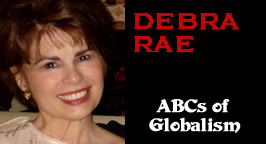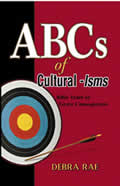COMING POLITICAL REVOLUTION, A CHAMPION, AND A FUTURE?
By
Debra Rae
April 9, 2016
NewsWithViews.com
Be Careful What You Wish For
Industrial Age America’s unprecedented economic revolution is fast fading under a new revolution—that of global socialism.[1] Then again, it’s not so new. On 17 August 1945, an English writer Eric Arthur Blair, commonly known as George Orwell, published Animal Farm[2] whereupon he painted a utopian vision inspired by German economist Karl Marx.[3] An allegory about life in the Soviet Union, Orwell’s narration tells the story of disgruntled Manor Farm animals owned by the Jones and mobilized by a pig called Old Major, whose dream of a future world featured freedom and equality for all.
There’s no mistaking it. It’s a big idea: restructuring into a new order, or paradigm, whereby animals are drawn together in common cause as one animal family, one farm community with a common destiny founded on universal rights, justice, and a culture of peace.[4] Can someone shout, “Amen!”?
Broadly bantered about today, the word “socialism” remains ever elusive.[5] To quote Hillary Clinton, “Part of diplomacy is to open different definitions of self-interest.”[6] To that end, Old Major would agree, “It’s necessary to take things away for the common good.” Whereas increasing numbers of Americans outwardly embrace the ideology, others scoff at the notion that U.S. policies under progressive policies smack of raw socialism.
Alexis de Tocqueville explained that democracy and socialism have one word in common—equality. Whereas democracies seek equality in liberty, socialism seeks it in level-the-field restraint and servitude.[7] Arguably, Orwell’s farm allegory speaks of the latter every bit as directly to America’s political landscape today as it did to the Soviet Union of Orwell’s day.
Culture of Victimization
Visionary pig Old Major narrowed the root of all the animals’ problems—namely, greedy humans who alone bear blame for meager rations and paltry stalls. Whereas toiling animals are producers, the businessman, investor, administrator, and/or owner are but parasites that siphon off the system by oppressing workers. Major’s charge was to wage a moral and political war of sorts against policies of greed enacted, in today’s terms, by billionaires and corporate leaders on Wall Street.[8] Toward ensuring dignity in an egalitarian super-status for the mass proletariat, Major advanced Animalism, distinguished by unity in thought and reflected in the collective.
Culture of Entitlement
Without listening to a word of what Major was saying, the cat purred contentedly throughout the rousing speech. It was noticed that, when work was to be done, the cat couldn’t be found—not until mealtime, that is. In Orwell’s world, whether weak or strong, clever or simple, all farm animals were brothers. Despite voting both sides of an issue, the well-fed cat convinced fellows of his good intentions by purring affectionately for the milk and cream due him.[9]
To protect the simpleminded from being led astray by pesky facts, strong, clever community organizers arose among the farm animals. The hard work of leadership fell naturally upon the cleverest of animals, the pigs. Comrade Pig Napoleon (aka Protector of the Sheep Fold) rallied animals for a better future on the heels of change they could believe in. Toward fundamental change, hope, and transformation, animals united with one voice, together chanting, “Yes, we can! Yes, we can!”
Culture of Intimidation
The “have-nots” became cannon fodder in what, over time, appeared to be a damaging collectivist experiment, but no worries. A self-appointed cadre of experts determined what was real, right, and true; then, codified principles of self-rule into non-negotiable, science-by-consensus precepts. Had they found the right arguments, several comrades might have protested. But then, why bother? Unfashionable opinions were seldom given fair hearings.[10]
“Settled science” was settled, no questions asked,[11] and “animal lives matter.” Period.[12] Each comrade increasingly surrendered personal freedom of thought and speech for some inexplicit construct heralding the common good. Any vague sense of uneasiness was smoothed over by spontaneous, swelling chants—i.e., “Animal lives matter!” “Main Street, not Wall Street!” “Yes, we can!”
Culture of Nepotism [13]
Once human masters were overcome, leaders of the revolution changed so drastically that they amended foundational commandments to make life easier, not for all animals, but for the executive family of pigs whose elevated service justified protecting their self-interest. Were they not, after all, superior? Before very long the key commandment—namely, “all animals are equal”—was adjusted to, “All animals are equal, but some are more equal than others.”[14]
By redistributing farm resources,[15] pigs concentrated wealth and, therefore, power into their own hands. It became apparent that the farm had grown wealthier without making the animals other than pigs and dogs any richer. In providing milk and apples for themselves, pigs defended need for that privilege: Brainwork on behalf of comrades warranted enriched nutrition.
In joining the revolution, the farm animals’ expectation had been a society set free from hunger and the whip, all equal, each working according to his capacity, the strong protecting the weak. In the race to obliterate power-without-controls over the human-centric farming enterprise, animals failed to understand that their efforts were destined to become steppingstones for bureaucratic burdens and regulations, coupled with invasion of privacy and wealth confiscation. Bravely, Snowball (himself a pig) refused to compromise animal equality for the sake of self-interest and greed. When Snowball courageously stood for sacrificial principles of Animalism, Napoleon criminalized and, then, eliminated him—for the common good, of course.
Culture of Liberal Monism [16]
There was no part of the farm irrelevant to the collective anymore. Fierce, growling dogs roamed everywhere, thus discouraging comrades from speaking their minds. Some clever animals secretly mused that this was not what they had hoped and toiled for, but none harbored thoughts of rebellion or disobedience in that skilled thought police discerned even a hint of rebellion through a look in the eyes, an inflection of the voice, or an occasional whispered word.[17]
Working-class
horses, Boxer and Clover, suspected something funny was going on with
the pigs, but naïve trust in Napoleon’s good intentions blinded
them to ways they were being exploited. As sheep blindly followed, so
did they. Each committed to accept the leadership of President Napoleon
and to remain faithful, work hard, and carry out orders. Compliant comrades
rationalized that they were far better off than they had been in the
previous administration. “We shall overcome” became the
state-approved message of their collective march.
All embraced the central slogan, “From each according to his
ability, to each according to his need.”[18]
Despite hardship, animals dreamed of Sugar-candy Mountain, where in
the sweet by-and-by they would rest forever from all labor. Until then,
each existed solely to serve the collective good. While work was strictly
voluntary, any animal absenting himself from it—except, purr-haps,
the cat—would find his rations reduced by half.[19]
Together, farm animals sang Beasts of England three times over–very
tunefully, but slowly and mournfully.
Downside of Championing the Coming Political Revolution
At long last, while huddling together, amazed and terrified, the animals observed a world turned upside-down at the hands of their cleverest of comrades, now majestically upright, casting haughty glances from side-to-side.[20] With authentic equality traded in for an elitist ruling class, demanding of the masses harder labors and worse pay, the utopian dream had, for them, morphed into a nightmare. Just at that moment comrades might have uttered some word of protest, familiar chants commenced and escalated for five full minutes without stopping. By the time the sheep had quieted down, the chance to utter any protest had passed; and the Pig-in-Chief had marched commandingly into his big, white house.
Creatures outside looked from pig to man, and from man to pig, and from pig to man again; but it was impossible to say which was which. The oppressed and the oppressor were one and the same. Alas, to make a long story short, the masses turned against each other and inevitably forfeited the better future for which they once fought collectively.[21]
Moral of the Story
There emerges always an “Old Major” whose dreams and vision ultimately fashion an elitist leader to be obeyed, even feared. As Old Major, Bernie Sanders champions “A Coming Political Revolution”; and, in tandem, Hillary Napoleon Clinton barks, “Everyday Americans need a champion. I want to be that champion.”
|
|
Especially in an election year rife with stirring campaign slogans, we best remember that, when righteous leaders are in authority, the people rejoice; otherwise, they mourn.[22] In 1832, Noah Webster published his history of the United States in which he warned, if citizens neglect their duty by allowing unprincipled rulers, public revenues will be squandered on unworthy men and women; and the rights of citizens will be violated or disregarded. “If a republican government fails to secure public prosperity and happiness,” Webster added, it must be because its citizens have neglected the divine commands. Moreover, they’ve failed to apply the plumb line of truth.
The moral of our story (and Orwell’s) is simple: Be careful what you wish for.[23]
© 2016 Debra Rae - All Rights Reserved
Footnotes:
1.
When global super-capitalism is mated with communism, the result is
a world socialist government called “commonism.” By transforming
private intellectual assets and nationally controlled natural resources
into the global commons, commonism effectively weds the bourgeoisie
and the working proletariat—allegedly, for the greater good. The
power elite that emerges works to synthesize capitalism and communism
into a world socialist government, called democratic transnationalism.
2.
George
Orwell. Animal Farm (1945): (Accessed 25 February 2016)
3.
Marx, Karl (1818-1883) – German philosopher, economist, and social
theorist whose account of change through conflict is known as historical,
or dialectical, materialism. His philosophical work owes much to the
writings of Hegel, whose idealism Marx rejected. Das Capital is the
fundamental text on class struggle, history, and the importance of economic
factors in politics. With Friedrich Engels, Marx developed his philosophy
demonstrating the material basis of all human activity. Together they
formed the German League’s program, the Communist Manifesto.
4.
“It’s a big idea: a new world order, where diverse nations
are drawn together in common cause … Only the United States has
both the moral standing and the means to back it up,” President
George H. W. Bush in his State of the Union Address, February 18, 1991.
5.
A socialist believes that the way to achieve good things is to have
government do it, but a government expected to provide everything one
needs is able to take away everything he has. Concerned with “the
common good”(utilitarianism), progressives advance an agenda for
equal distribution of wealth and work. Proponents demand that everyone
has the right to assured income and affordable housing. Note: Our Bill
of Rights guarantees neither. Minus America’s signature middle
class, two classes remain—namely, the oppressed and their oppressors.
Every communist experiment that has ever been enacted, without exception,
has caused unspeakable levels of the poverty, despite bogus claims to
the contrary. Technically speaking, communism is the final phase and
goal of socialism (i.e., big government). Under a progressive administration,
this is the “real change” Americans can count on.
6.
Hillary
Clinton (Accessed 25 February 2016)
7.
http://www.brainyquote.com/quotes/topics/topic_equality.html
(Accessed 25 February 2016)
8.
http://www.brainyquote.com/search_results.html
(Accessed 25 February 2016)
9.
Confiscation of the fruits of success to one who did nothing to earn
the reward is by definition an act of greed, not to mention acts of
thievery and piracy (Chuck Morse)
10.
Touted as “tolerance,” political correctness is higher-order
critical thinking often called holistic, systems, or integrated. The
PC political agenda supersedes all other considerations. “At any
given moment there is an orthodoxy, a body of ideas which it is assumed
that all right-thinking people will accept without question.”
Indeed, “anyone who challenges the prevailing orthodoxy finds
himself silenced with surprising effectiveness” (George Orwell,
Animal Farm).
11.
The phrase, “settled science,” is an oxymoron. A scientist
accepts that “correlation does not necessarily imply causation,”
and he must control for all possible causes of his results. For real
scientists, the debate is never over—about anything. To eliminate
possible error in data or logic, scientists are open to peer review.
Without exception, all scientific knowledge is open to challenge. To
the contrary, the Wildlands Project provides an example of politically
driven “science.” Vice Chairman Harvey Ruvin (ICLEI) insisted,
“Individual rights will have to take a back seat to the collective.”
12.
While 72% of Americans are Caucasian, it’s deemed “racist”
to suggest that “white lives matter” (even when agreeing
that “black lives matter,” too). In truth, “all
lives matter”—unless, it would seem, that declaration fails
to support progressive political and/or social agendas.
13.
Nepotism (favoritism) speaks to an oligarchy, government by a ruling
elite. In contrast, God opposes those who are “partial in themselves”
having become self-appointed “judges of evil thoughts.”
With no God and no objective reality, communism looks to a powerful
figurehead to serve the so-called greater good (Chuck Morse).
14.
Egalitarianism is a specious buzzword for nepotism (or favoritism).
It’s naked socialism demonstrated in affirmative action’s
styling of reverse discrimination and its prevailing culture of entitlement.
God pairs true equity with righteousness, viewing a just weight as “His
delight” and a false balance as “abomination” (Proverbs
2:9:11:1). Because it’s not right to do wrongly that good may
come, reverse discrimination cannot possibly be a godly solution for
the offense of bigotry (Gal. 3:28; Ps. 34:14; Acts 10:28).
15.
Those who own most of the top one percent of the wealth in the world
are largely on the political left. Historically many of these same establishment
conspirators were supporters of the two great political conspiracies
of the 20th Century, those being Communism and Nazism; and that support
included providing finance, media, propaganda, agitation, and other
in-kind services (Chuck Morse).
16.
Coined by Jean Bethke Elshtain of the University of Chicago, Liberal
Monism is a philosophy denying reality that there are many separate
beings in the universe. All ideas are connected together in the one
highest ideal—i.e., that which is embodied in liberal/progressive
thought, practical core values of which include federal deficit spending,
high taxes, feminism (choice), gender and racial affirmative action/mandated
quotas, secular education, gay liberation, judicial activism, and the
like.
17.
With Draconian fervor, Brown Coats (storm troopers of the SA), Black
Coats (SS), and Blue Coats (police) dominated Nazi Germany. Theirs morphed
into a culture of surveillance whereby squads of police hunted down
all evidence of resistance. Due process fell by the wayside, as did
basic freedoms of press and speech. Elections became farces; mail was
intercepted, books burned. Never having been formally charged, many
were arrested under protective custody.
Swelling military presence and mass shootings backed threats that “whoever
lifts his hand against the State must die for it.” All were compelled
to “self-coordinate” in line with National Socialism’s
guiding slogan: “The public will transcends interests of the individual.”
Within a violent culture of death, rabid national unity took on dark
religious overtones, yet the German populace at large failed to push
back, even on the Night of the Long Knives, otherwise known as Hitler’s
Purge.
18.
To commonists, “greedy”
Americans are a cancer whose market-directed economies wreak chaos and
instability. In their view, for the sake of “social justice,”
producers must provide for non-producers—from each according to
ability, to each according to his work and/or need. Commonism could
possibly bring about a more productive society were there no greed,
jealousy, or laziness; but (problem is) all three exist.
19.
The phrase, mandatory
volunteerism, is an oxymoron, which mirrors Planks 8 and 10 of the Communist
Manifesto. It was reflected in Bill Clinton’s national “volunteer”
program for America’s youth. Viewed as human resources, students
are fitted to the work-force needs. Their “free” education
privilege compels them to “volunteer” their services. As
life-long learners, participating in cradle-to-grave indoctrination,
and also as role models for youth, adults likewise are compelled to
serve, often in the environmental arena.
20.
Isaiah
5:20—“Woe unto them that call evil good, and good evil;
that put darkness for light, and light for darkness; that put bitter
for sweet, and sweet for bitter!”
21.
Considered an ancient utopia (literally, “no place”), Atlantis
was an ancient city (or island) said to contain elements of democracy.
In reality, “Except the Lord build the house, they labor in vain
that build it” (Ps. 127:1).
22.
Proverb 29:2-4
23.
In 1921, leading American socialist Norman Thomas gave voice to this
scheme: “Under the name of liberalism,” he explained, the
American people will “adopt every fragment of the socialist program
until one day America will be a socialist nation without knowing how
it happened.” Punishing the middle class, expanding racial justice
to favor minorities, trumping the U.S. Constitution with international
“soft law,” and demanding justice for the planet (ostensibly
worthy of human apology and even worship) all hasten Norman Thomas’
premonition.
The 18th century statesman Edmund Burke wisely reminded us, “Those who don’t know history are destined to repeat it.”













 Share
This Article
Share
This Article





